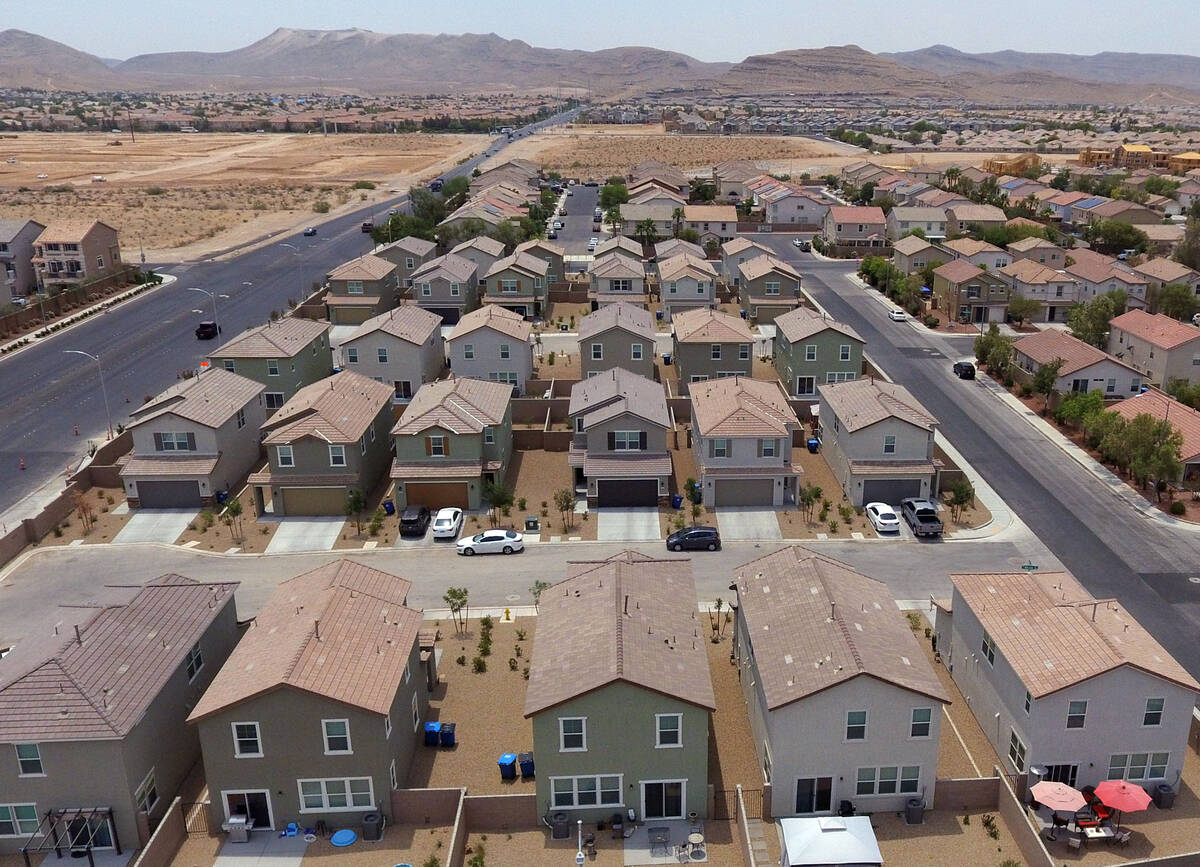
The Las Vegas metro region has one of the highest rates of rental burdens in the country according to a new UNLV study.
In Las Vegas, Henderson, North Las Vegas and the overall metro region, 58.3 percent of all renters are spending more than 30 percent of their income on rental costs. The U.S. Department of Housing and Urban Development states that a renter is “housing cost burdened” if they are spending more than 30 percent of their income on housing costs.
More than half of renters (57.3 percent) in the state are also spending more than 30 percent of their monthly income on rental payments, according to the study, which was authored by Shawn McCoy, the director and associate professor for the Lied Center for Real Estate at UNLV.
McCoy, who used U.S. Census data for the report, also found that the Las Vegas metro area ranks worse than the New York-Newark-Jersey City metro area (52.6 percent) and San Francisco-Oakland-Berkeley (48.9 percent) when it comes to renters allocating more than 30 percent of their income toward housing.
“Housing is the single largest household expense. Excessive cost burdens can detrimentally affect mental and physical well-being, lead to increases in the prevalence of food insecurity and overall translate into a lower quality of life,” said McCoy. “Our research shows that Nevada’s renters are more cost burdened than Nevada’s homeowners.”
McCoy pointed to a lack of diverse and adequate supply of rental housing in Las Vegas as one of the main culprits.
“Renters with the goal of owning a home may find it increasingly harder to do so, which can exacerbate wealth gaps between homeowners and renters over time,” McCoy said. “This concern is relevant in light of data released by the Survey of Consumer Finances, which shows that the gap in wealth between owners and renters has reached a historic high.”
The study also looked at excessively cost-burdened renters — those who are paying 35 percent or more on housing. It found that Nevada is the second highest excessively cost burdened state for renters with 47.7 percent of renters paying 35 percent or more on housing. That trails Florida (50.5 percent), but is slightly ahead of California (46.7 percent) and the District of Columbia (46.6 percent).
Rental rates in Las Vegas are rising faster than the national average, according to new data from Redfin, but local data from Colliers commercial real estate has them holding steady in 2024.
Sun Belt cities are seeing drops in rental rates year over year, according to Redfin, but Las Vegas appears to be an outlier as rents are up 2.4 percent since the end of April, a 1.7 percent increase from this time last year.
The median asking rent in Las Vegas is $1,505, according to Redfin, while the average rent in the nation is $1,648. The average rent across the United States was up 1.7 percent since last month, a 1.1 percent increase year over year.
Contact Patrick Blennerhassett at [email protected].
This post was originally published on 3rd party website mentioned in the title of this site



